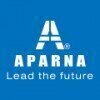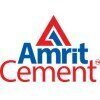Filter interviews by
DRYCHEM SOLUTIONS Interview Questions and Answers
DRYCHEM SOLUTIONS Interview Experiences
6 interviews found
I applied via Walk-in and was interviewed in Jun 2022. There were 2 interview rounds.

(2 Questions)
- Q1. What is the induction
- Ans.
Induction is the production of an electromotive force across an electrical conductor in a changing magnetic field.
Induction is the process of creating an EMF in a conductor by exposing it to a changing magnetic field
It is the basis for the operation of generators, transformers, and many other electrical devices
Induction is used in wireless charging, induction heating, and induction motors
It follows Faraday's law of ele...
- Q2. Transformers type po
Interview Preparation Tips
I applied via Recruitment Consulltant and was interviewed in Feb 2023. There were 3 interview rounds.

(1 Question)
- Q1. About me and my current working details
(3 Questions)
- Q1. About me and my work experience
- Q2. Type of working, leave reason
- Ans.
The type of working refers to the working hours and schedule of an employee. Leave reasons can vary depending on personal or professional circumstances.
The type of working can be full-time, part-time, or flexible hours.
Leave reasons can include personal reasons like illness, family emergencies, or vacations, as well as professional reasons like attending conferences or training.
Employees may also take leave for materni...
- Q3. Gst, Tds, e waybill e invoice, based questions
Interview Preparation Tips
I applied via Campus Placement and was interviewed before Oct 2023. There were 3 interview rounds.
Current products of the company
(2 Questions)
- Q1. Tell me about yourself
- Ans.
Experienced Senior Executive with a proven track record in leading teams and driving business growth.
Over 10 years of experience in senior leadership roles
Strong strategic planning and decision-making skills
Successful track record in increasing revenue and profitability
Effective communicator and team leader
Led a team that achieved a 30% increase in sales last year
- Q2. What do you want to become ?
- Ans.
I want to become a successful leader in the industry, driving innovation and growth.
Develop strong leadership skills through mentorship and continuous learning
Focus on strategic planning and execution to drive business success
Build a strong network of industry contacts for collaboration and growth opportunities
(2 Questions)
- Q1. Business Model of the company
- Ans.
The company operates on a subscription-based business model, offering monthly services to customers.
Subscription-based model allows for recurring revenue streams
Customers pay a monthly fee for access to services
Can offer different tiers of subscriptions with varying levels of service
Examples: Netflix, Spotify, Amazon Prime
- Q2. Any questions from my side
Interview Preparation Tips
Quality Assurance Quality Control Engineer Interview Questions & Answers
posted on 11 Oct 2022
I applied via Naukri.com and was interviewed in Apr 2022. There were 2 interview rounds.

(2 Questions)
- Q1. Asking some question about civil engineering...
- Q2. Grade of concrete... Types of curing Type of steel. Etc.
- Ans.
The question is related to construction materials and techniques.
Grade of concrete refers to its strength and durability. It is denoted by a number such as M20, M30, etc.
Curing is the process of maintaining moisture and temperature conditions to allow concrete to develop its full strength and durability. Types of curing include water curing, steam curing, and chemical curing.
Type of steel used in construction includes ...
Interview Preparation Tips
To always try to batter.
Interview Questionnaire
5 Questions
- Q1. Tell me something about yourself?
- Ans.
I am a dedicated professional with a passion for problem-solving and a strong background in project management and team collaboration.
Over 5 years of experience in project management, successfully leading teams to deliver projects on time and within budget.
Skilled in using Agile methodologies, which improved team efficiency by 30% in my last project.
Strong communicator, having facilitated workshops and presentations fo...
- Q2. What is CPM and PERT?
- Q3. How would your technical background help you in this role?
- Q4. Why do you want to come to this role after coming from Technical background?
- Q5. Tell me something that is not in your resume?
I applied via Naukri.com and was interviewed in Sep 2020. There were 6 interview rounds.
Interview Questionnaire
1 Question
- Q1. About myself, about experience, etc.
Interview Preparation Tips
Top trending discussions






Interview questions from similar companies

Interview Questionnaire
1 Question
- Q1. Tell about your self

Interview Questionnaire
2 Questions
- Q1. HR head asked about job history and present role
- Q2. After screening resume plant head and Department head took telephonic interview then selection done.
Interview Preparation Tips

I applied via Recruitment Consultant and was interviewed before Jan 2021. There were 3 interview rounds.
Interview Questionnaire
1 Question
- Q1. Asked about packers vfds mills,weighing systems Fire Alarm systems
Interview Preparation Tips

I applied via Approached by Company and was interviewed before May 2018. There were 2 interview rounds.
Interview Questionnaire
2 Questions
- Q1. Question asked related to Quality control on site.
- Q2. Asked about site execution practices, labor management and SAP
Interview Preparation Tips
DRYCHEM SOLUTIONS Interview FAQs
Tell us how to improve this page.
DRYCHEM SOLUTIONS Interviews By Designations
- DRYCHEM SOLUTIONS Electrical Engineer Interview Questions
- DRYCHEM SOLUTIONS Quality Assurance Quality Control Engineer Interview Questions
- DRYCHEM SOLUTIONS Executive Accountant Interview Questions
- DRYCHEM SOLUTIONS Sales Support Executive Interview Questions
- DRYCHEM SOLUTIONS Senior Executive Interview Questions
Interview Questions for Popular Designations
Overall Interview Experience Rating
based on 6 interview experiences
Difficulty level
Duration
Interview Questions from Similar Companies
DRYCHEM SOLUTIONS Reviews and Ratings
based on 123 reviews
Rating in categories
0-10 Yrs
Not Disclosed
|
Executive Accountant
24
salaries
| ₹2.8 L/yr - ₹4.4 L/yr |
|
QA QC Executive
21
salaries
| ₹2.2 L/yr - ₹4.4 L/yr |
|
Assistant Manager
12
salaries
| ₹4.2 L/yr - ₹8.7 L/yr |
|
HR Executive
12
salaries
| ₹2.5 L/yr - ₹4 L/yr |
|
Deputy Manager
9
salaries
| ₹7.2 L/yr - ₹12.5 L/yr |

Amrit Cement

Sanghi Industries

My Home Industries

RAK Ceramics
- Home >
- Interviews >
- DRYCHEM SOLUTIONS Interview Questions












